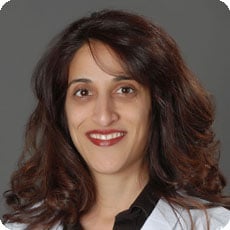Opioid Epidemic. How PainKillers Are Killing Our Kids.
Studies show narcotic abuse begins as young as 12
Opioid abuse has become an epidemic not only for adults, but also for children. Artee Gandhi, M.D., medical director of Cook Children’s Pain Management Program, says that health care has neglected the prevalence of pediatric pain and has not placed focus on the importance of treating our youth with mind-body therapies, rather than medications. "When we prescribe narcotics we need to do so for the right reason, the right amount of time, the right dose and the right amount," Gandhi said.
Recent studies show that the use of prescription opioids doubled for adolescents, 15 to 19 years of age, between 1994 and 2007. The Centers for Disease Control and Prevention (CDC) reports that nearly 2 million Americans 12 years of age or older either abused or were dependent on opioid painkillers in 2013.
In one study of illicit drug use among teens, opioids accounted for 100 percent of the deaths.
“These are kids that were prescribed opioids for some reason, most of the time for some pain-related condition by dentists, emergency room doctors or primary care physicians,” Dr. Gandhi says. “These kids are going back and taking these medications at a later time. They are using these left overs for non-medical use. We now know that the risk of death from overdose has increased. We also know that the use of opioid prescriptions leads to a higher incidence of anxiety and depression. Interestingly enough, even those kids that are given opioids for a legitimate reason will tend to misuse and abuse drugs.”
The CDC, the U.S. Surgeon General, and President Obama have all taken strong stances on addressing the epidemic of opioid misuse and related deaths.
However, most programs and position statements refer to adults and do not address the issues our children are combatting.
 The Pain Management Program at Cook Children’s treats kids with pain ranging from fibromyalgia to migraine headaches to end-of-life patients to kids with life- limiting conditions such as neuromuscular disorders, and pain related diseases such as arthritis, cerebral palsy, etc.
The Pain Management Program at Cook Children’s treats kids with pain ranging from fibromyalgia to migraine headaches to end-of-life patients to kids with life- limiting conditions such as neuromuscular disorders, and pain related diseases such as arthritis, cerebral palsy, etc.
The specially trained physicians at Cook Children’s create a treatment plan that is focused on each particular child and opioids aren’t often the first or only pain medicine used to treat children.
“The danger comes when physicians think the only way they can treat pain is through a narcotic and that’s not the case,” Dr. Gandhi says. We need to know what type of pain the patient is having and take into account the child’s experience of pain. We are all individuals and no two people react the same way."
Dr. Gandhi says that between 15 to 20 percent of the kids seen at her clinic are on chronic opioids, but they are kids that have life-limiting medical conditions or end- of-life conditions.
The other 80 percent of the pain management patients work with physical and occupational therapists and receive therapies such as massage, biofeedback, cognitive behavioral therapy and acupuncture. Music, art and animal assisted therapies are also available for children. They look at all factors that contribute to the pain experience such as diet, nutrition, sleep habits, stress management and coping mechanisms. They create an environment of integrative health where practitioners and patients work together.
“We need to be much more vigilant on how we treat kids’ pain and how we create centers that address that pain,” Dr. Gandhi says. “If you look in Fort Worth or Tarrant County, there are probably 60 adult pain centers in this area, but for kids there are 35 in the entire country. That’s a huge difference. That perspective is crazy.”
About the source
 Artee Gandhi, M.D., is a pediatric pain management specialist and anesthesiologist. She has trained across the country including residency at the University of Missouri and fellowship at Stanford Univeristy. Cook Children's Pain Management program cares for infants, children and adolescents with chronic and acute pain. Cook Children's is one of a few children's hospitals in the U.S. providing a comprehensive pediatric pain management program.
Artee Gandhi, M.D., is a pediatric pain management specialist and anesthesiologist. She has trained across the country including residency at the University of Missouri and fellowship at Stanford Univeristy. Cook Children's Pain Management program cares for infants, children and adolescents with chronic and acute pain. Cook Children's is one of a few children's hospitals in the U.S. providing a comprehensive pediatric pain management program.
